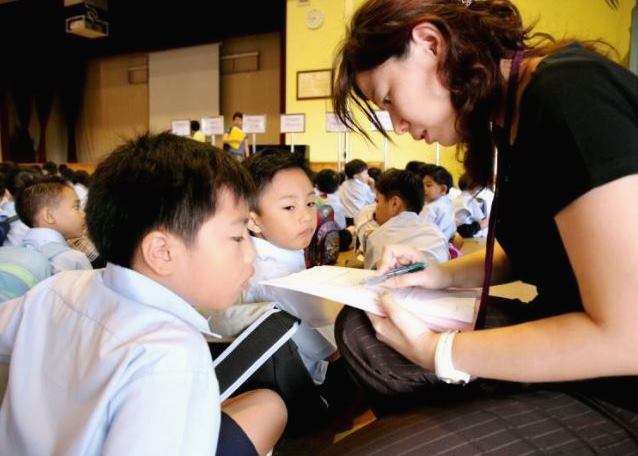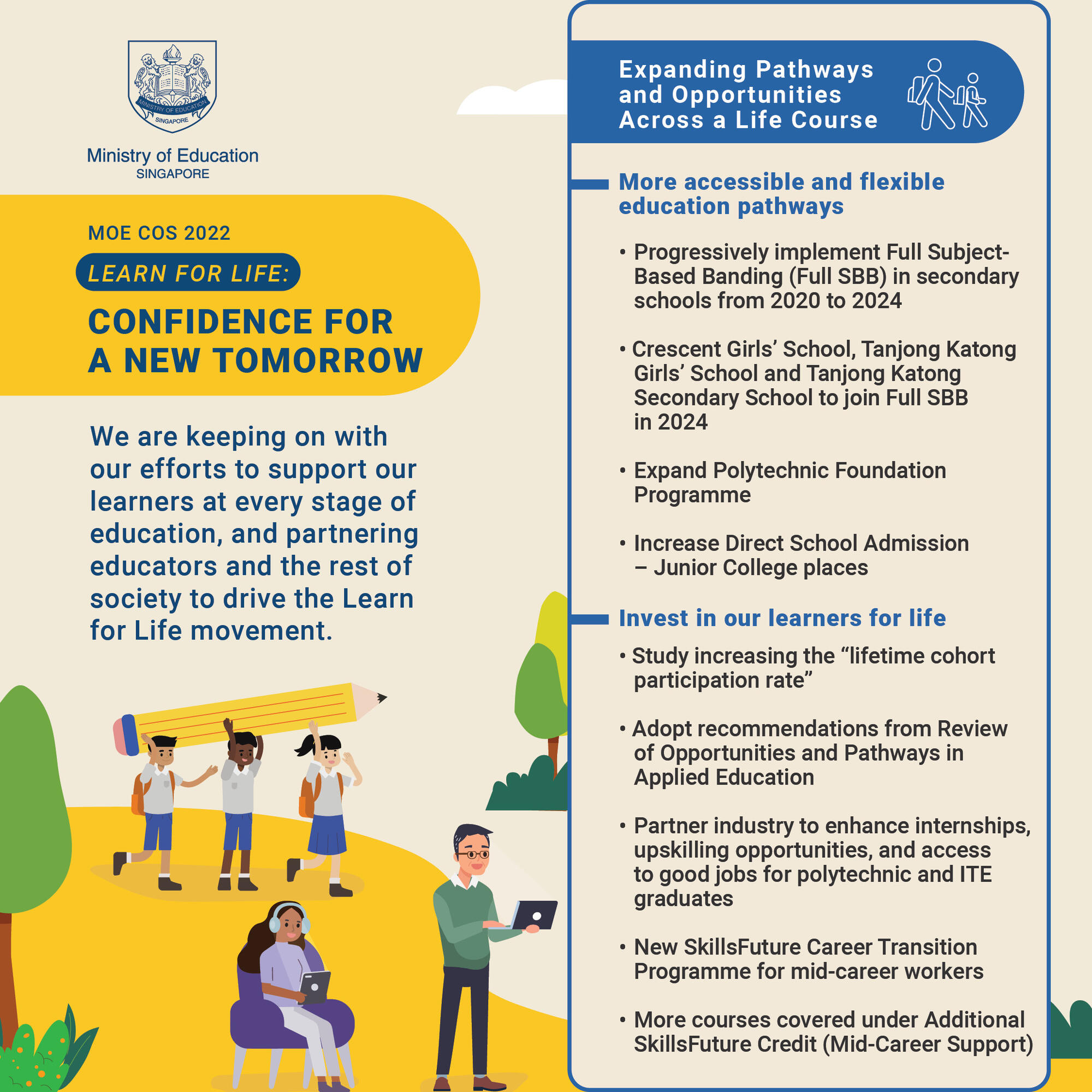Why volunteer at primary schools?
28 Jun 2016

Volunteering at school takes time, and time could be a scarce commodity for many parents. Why volunteer, and what should you consider before signing up? We speak to Mrs Jane Koe, the chairperson of Ngee Ann Primary’s PSG.
Why volunteer?
1. Improve family bonding
Being a parent volunteer goes beyond lending a helping hand to the school. A parent’s active involvement in school activities can boost family bonding and values education at home. When parents volunteer, opportunities are created for them and their children to have conversations about school, teachers and peers.
“The child may infer that his or her parents place great care and importance in the school and school programmes,” explains Mrs Koe. Parents also get to know more about their child’s life in school and the child senses the parent’s interest and love.
Parents are also their child’s role models. Children learn social responsibility not just by talking about it; they pick up positive values as they watch their mums and dads give back to the community.
2. Learn from experience
The benefits of volunteering are not just for the children. Parent volunteers are constantly learning from one another as they contribute to the school, says Mrs Koe. The PSG members of Ngee Ann Primary keep in touch with each other to exchange news and knowledge on education and children.
In addition, Mrs Koe tries to attend all events organised or initiated by the PSG to reach out to other members, especially parents who are new to volunteering. This way, she can help new volunteers learn more about the school and the PSG.
Mrs Koe works closely with the school’s leaders to address matters related to the PSG as well. “By associating with other parents, and the school principal and teachers, I learn and upgrade myself on education in general. I can understand and better appreciate the work of our teachers,” she shares.
3. The joy of giving back
For Mrs Koe, being a parent volunteer has been enjoyable, and she hopes to continue sharing her experiences with her younger counterparts. She has been serving at Ngee Ann Primary since 1995. Her three children have long graduated from the school, but she continues to contribute.
“I hope to continue to support and mentor our young parents and to encourage more parents to be involved in school programmes and activities by tapping on their knowledge and expertise,” she says.
Considerations before volunteering
Volunteers can contribute in different ways, and the key is how one can do his or her part while balancing it with other commitments.
1. Discuss it with your child
If the parent has a child who is currently studying in the school, they should discuss with their kids about their participation before signing up, says Mrs Koe.
There are children who prefer that their parents do not perform during school concerts, but are fine if they offer help in other areas. There are also students who try to persuade their parents to volunteer, after seeing their friends’ mums and dads helping out in school.
2. Time
Determine how much time you can offer and look for a matching opportunity. Some parents are able to offer a pocket of time in the morning before work, so a group of eight parent volunteers would turn up at Ngee Ann Primary School to read to academically-weaker students every morning. Each of them is paired with a student, and they spend about 20 minutes poring over reading material before the start of the school day. They also help the students with learning phonics and vocabulary.
For parents with busier schedules, it may be hard for them to set aside time for daily programmes. But they can still look out for opportunities at ad hoc events, such as at Chinese New Year celebrations and Children’s Day.
Parents who are professionals from various sectors and backgrounds have also joined Ngee Ann Primary’s PSG, shares Mrs Koe. Their diverse experiences have strengthened the group and added value to the school. For instance, a PSG member from South Korea helped to coordinate activities and booths showcasing Korean and Japanese culture at the school on International Friendship Day.
“We have parents who are artistically and musically inclined, computer adept, multilingual, sports-oriented, experienced storytellers, mentors and keen shoppers. They serve in the library, contribute to the school canteen committee, help out in school excursions and many more activities,” explains Mrs Koe.
3. Find out about the school’s needs
Parents should also first find out if there is a match between the needs of the school, and the skills and resources the parent can offer. This helps to ensure that the school’s and parent’s expectations are met.
For Mrs Koe, her volunteering journey began when she offered to help students who had difficulty in reading. Later, she also looked after Primary 1 students when their teachers were at meetings.
A good match between the school’s needs and what a parent volunteer can offer will enhance our children’s educational journey.




